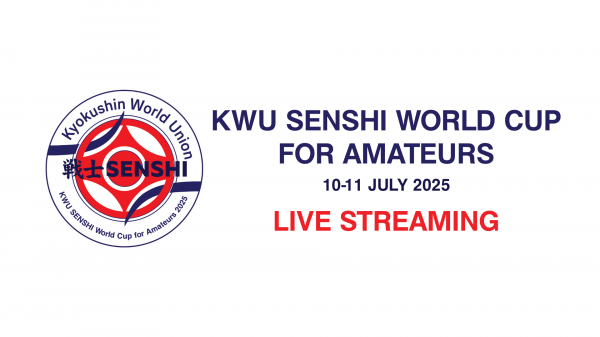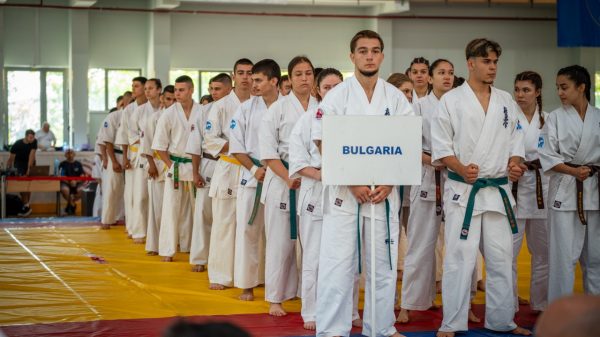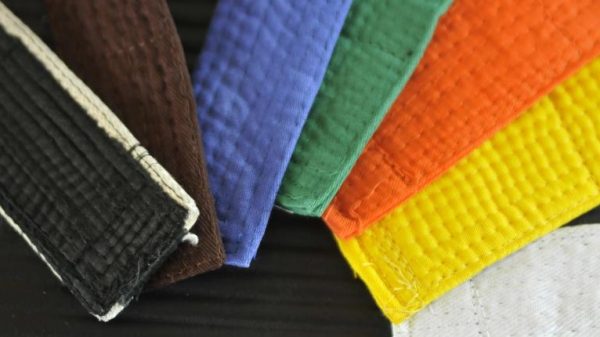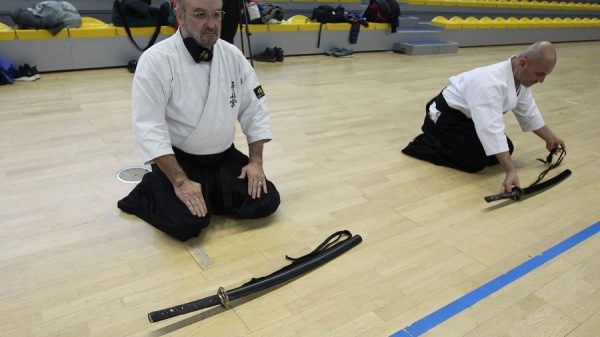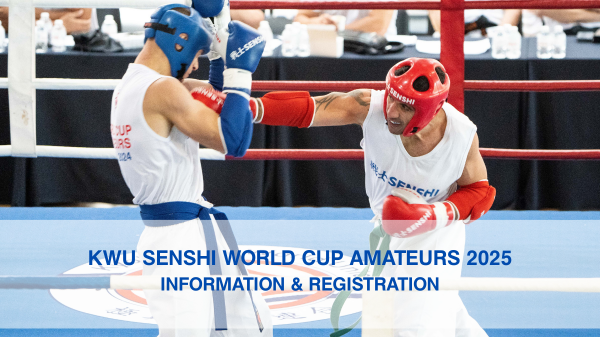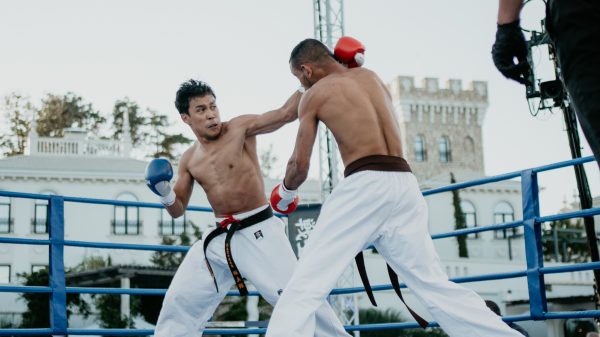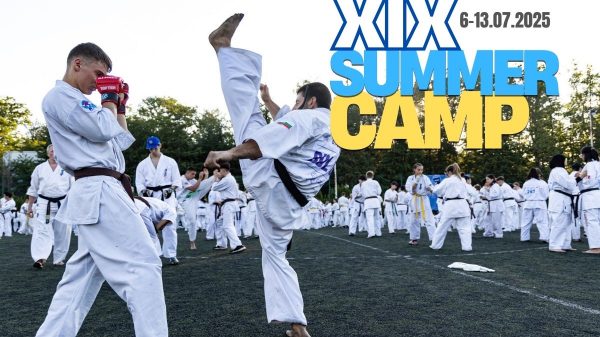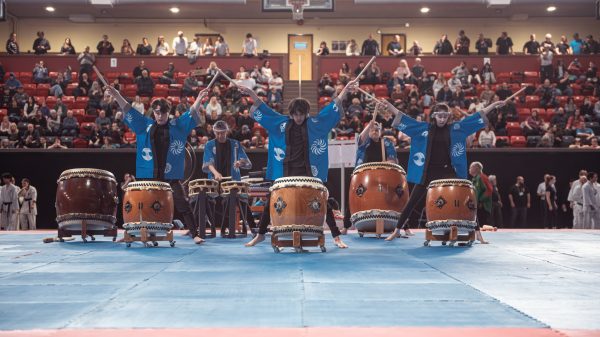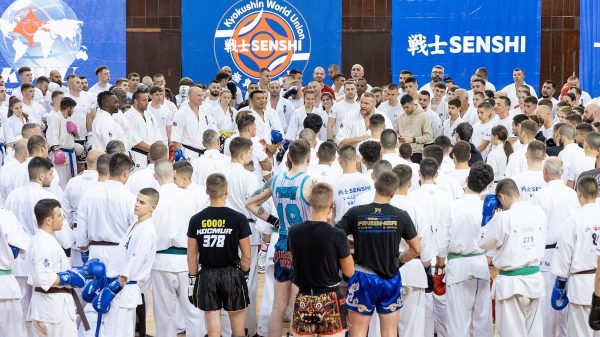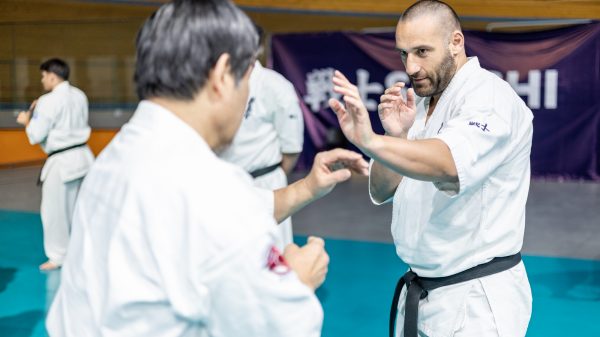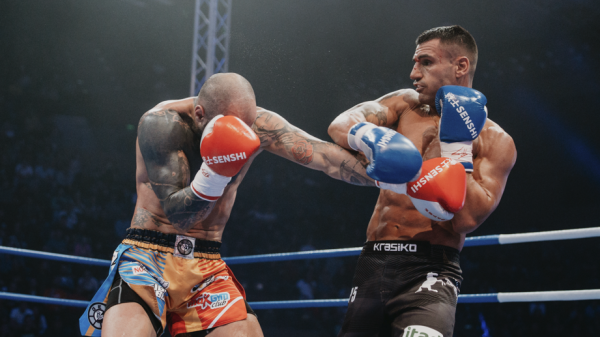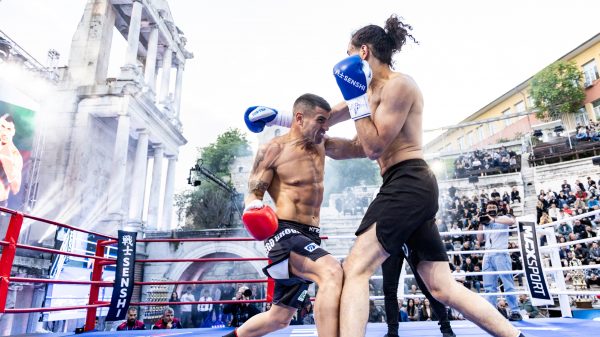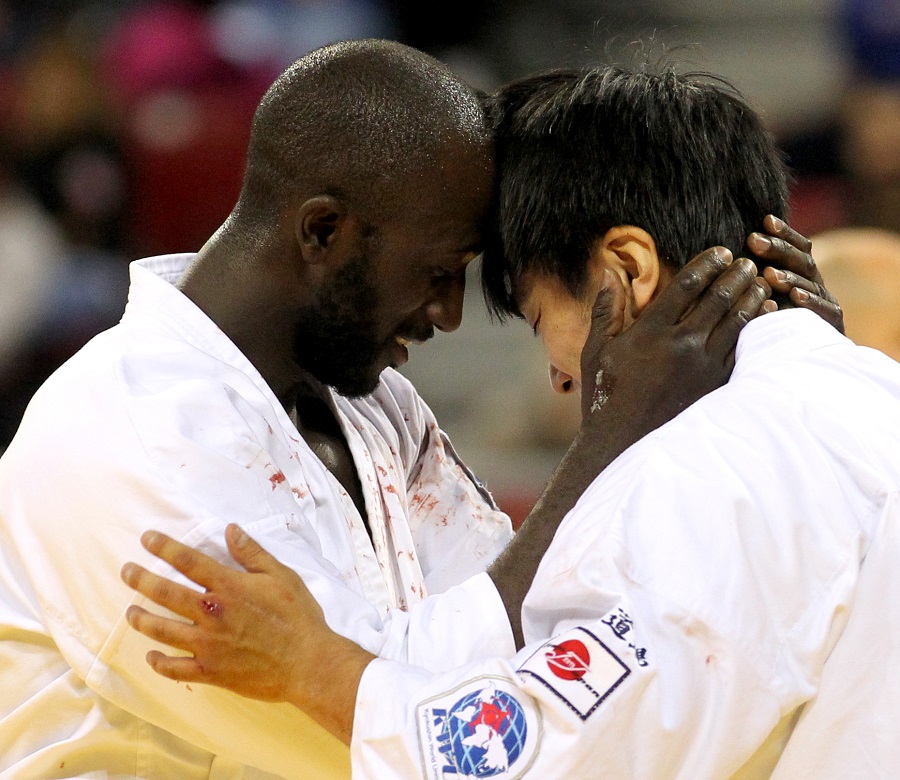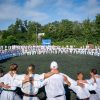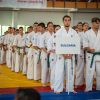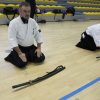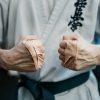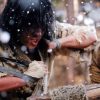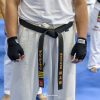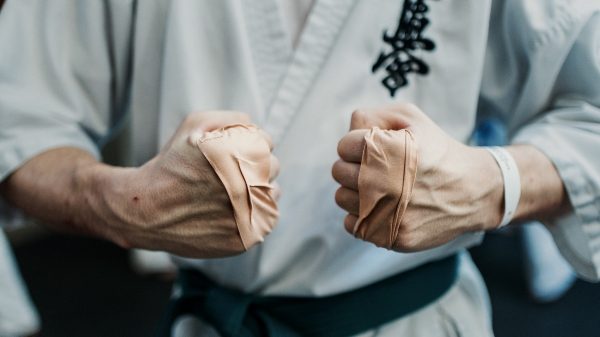We see this in every class when students and Instructors bow to each other and the start and finish of the lesson. We also see it when partners bow to each other when they start working together, and when students bow when they first walk into the training area.
When we bow, we turn our faces to the floor, not looking at the person we are bowing to as a sign of trust. When we bow, we are telling ourselves and the entire school that we take the things we are about to do seriously, and we are ready and prepared to do what is necessary for our training.
In some Martial Arts systems, the students always keep looking into each other’s eyes as they bow, as an expression of constant awareness. This is one tradition of Martial Arts. The one we choose to honor in our Dojo is that we turn our faces to the floor as we bow, exposing the back of our neck. This is an ancient sign of complete trust. It used to happen that when someone went before their overlord in feudal times, they would state their case to their overlord, then bow, exposing the back of the neck, and offering their overlord the chance to dispense justice as he saw fit. We bow in the same way to indicate that we trust our partner to train in such a way that challenges and extends us in the training session, and at the same time keeping us safe.
When we treat things and people with respect, we act as though those things and people are important. We can show this through our tone of voice, our body language, our use of space, and our use of our belongings. If we can speak and act as though people are important, we are treating them with respect. When we treat our personal space and those of others, our belongings and those of others as though they are important, we are treating them with respect. Treating things and people with respect is allowing them to be as they are, without requiring them to change to accommodate us.
When we are able to show respect, we open ourselves to the possibility that there are new things for us to learn and discover. When we show respect, we are also acting in a way that requests the people around us to take us seriously and act with respect in return.
The Empty Cup
There was once an Instructor who had many students. There was one student in particular who was very talented, however also very impatient. Whenever the Instructor would say something to the students in the class, this student would commence his work before the Instructor could even finish his instructions to the class. Whenever the student was offered correction on his technique, he would always reply ‘I know, I got it’.
Because the Instructor saw potential in this student despite his lack of respect, the Instructor decided to do something to make the student see how his actions were limiting his training. So the Instructor invited all the students to a tea ceremony after their class.
All the students attended the ceremony, and the Instructor served each a cup of scalding hot tea. When the Instructor came to serve his impatient student, he did not stop when the cup was full but kept pouring the hot tea so it overflowed onto the student and the mats. “Master!” cried the student, “Stop, my cup is full!”
“Ah, said the Instructor, “When the cup is full there s no room for any more tea. The student hung his head as he realized that his mind was like the full cup, with no room for more knowledge if he did not have the respect to empty his mind of what he thought he knew before class.
This is a traditional teaching story of the Martial Arts, which Instructors have told to their students for generations. It is interesting as it shows us how a lack of respect can prevent us from getting the most out of our training. When we do not respect the words of our Instructors, we take in less information from the Instructor. When we do respect the process of learning things in their correct sequence and time, we rush through our basics and do not have a firm base of knowledge to build solid skills on. When we do not respect our Dojo, it becomes run down, equipment becomes less sturdy and effective and we do not have the same attitude when we come to train.
On the other hand, if we listen carefully and respectfully to our Instructors, striving to gain more knowledge even when the Instructor is not speaking directly to us, we gain an increased knowledge and become more effective in our training. If we do make certain, in our training, to treat the basic techniques with as much respect and emphasis as the more advanced skills, we will have a strong and solid foundation to build amazing skills on. When we respect our Dojo, being sure to put away equipment after it has been used, keeping it free from litter and discarded items, we have a place that is free from distractions and is a pleasure to learn in.
The difference is in the way we treat things. If we treat things as though they are important, we are treating them with respect and we can create a place of learning. This also applies to our interactions with people. When we treat our Instructors, fellow students, parents, family members as though they are important, as though they have something to offer us, we are treating them with respect and we are building strong relationships and opportunities to learn from each other.
Source: firephoenixmartialarts


